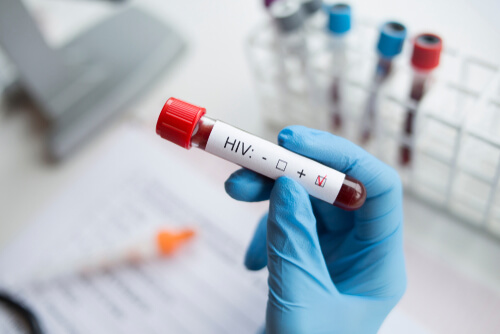
HIV Infection
Infection with HIV can be acquired through unprotected sexual intercourse (both anal and vaginal), injectable drug use, receipt of tainted blood products and mother-to-infant transmission. Infection can also be acquired from occupational exposures among health care workers after needle sticks or infected blood splashes from patients infected with HIV onto vulnerable mucosal membranes.
Unprotected sexual intercourse accounts for approximately 80% of all documented HIV infections to date.
Transmission between sexual partners depends on a number of factors such as
- The HIV viral subtype
- Stage of infection in the index partner
- Genetic susceptibility to infection of the potential host and the viral fitness of the infecting strain.
- Perhaps one of the most important predictors of transmission is the amount of HIV RNA in the blood of the infected index patient (i.e. viral load).
Acute retroviral syndrome HIV is characterized by nonspecific symptoms such as fever, lymphadenopathy, rash, fatigue and night sweats that coincide with an initial burst of viremia. These symptoms as well as the presence of opportunistic infection and high-risk sexual or drug-using behaviours warrant human immunodeficiency virus (HIV) testing.
With current antigen/antibody laboratory tests, HIV can be diagnosed as early as 2 weeks after infection. In patients in whom very early infection (<2 weeks) is suspected, nucleic acid tests for HIV RNA may be considered for diagnostic purposes.
Early diagnosis is beneficial as patients will:
- Benefit from current treatments
- Have an improved prognosis
- Be educated about avoiding passing on the virus
- Become less infectious once on treatment
- Have the opportunity to reflect and plan ahead
The most common test:
- The 4th generation test is the combined test that looks for both HIV-1 and HIV-2 antibodies as well as the HIV p24 antigen (a protein of the virus).
- After a positive test, another sample is usually requested for confirmation.
- Antibodies to HIV usually take 4-6 weeks to appear but can take up to 12 weeks.
- P24 antigen may be present within two to five weeks. This becomes undetectable once antibodies to HIV develop.
- Polymerase chain reaction (PCR) tests and nucleic acid tests are suggested for HIV RNA.
Rapid testing devices look at antibodies only on pinprick blood samples and can obtain a result within 10 minutes. They do not detect p24 antigen and do not have a longer window period than the combined test and are not suitable for suspected primary HIV infection. Positive tests need to be confirmed with a conventional blood test.








Leave a comment